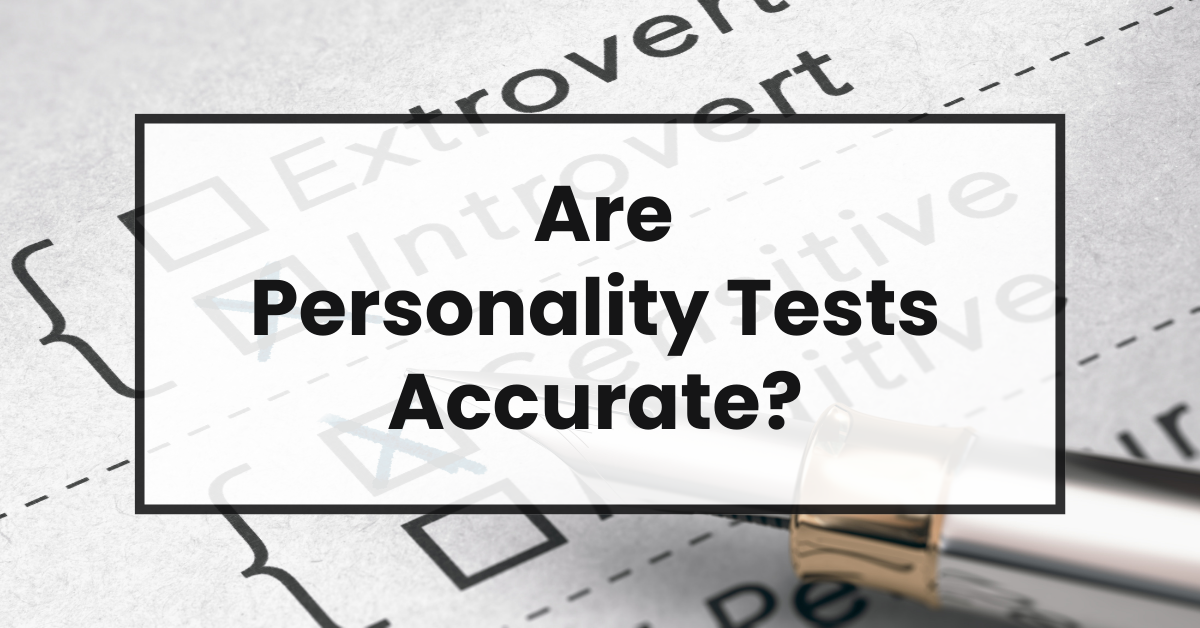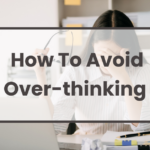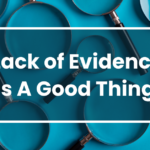And even if they are, what value can they provide? Are they worth your attention, or are they a waste of your time?
We’re going to address all of that, and also, we’re going to look at one of the most hidden and deadly traps you can fall into when you take a personality test.
The Importance of Personality
Understanding yourself and the people around you is becoming more and more important if you want to thrive in today’s world.
This holds equal weight in our personal lives, our relationships, and our professional lives too.
Especially with the advent of AI tools, the landscape is changing, and focusing on what makes us human is becoming increasingly crucial for preserving our edge.
One of the most important components for us as humans is our personalities. A personality is something that AI can never have, and so with a deeper understanding of personality, we can cultivate what makes us unique.
Personality tests offer one of the most popular methods for gaining that deeper understanding of ourselves.
But what kind of picture do they give? Let’s take a closer look and see how much we can really trust them…
Personality Test Accuracy
Understanding your personality is an inexact science.
Now that doesn’t mean that it’s not worth doing! It just means that you can’t pinpoint the exact details of a personality like you can the components of a car engine, for example.
It’s important to keep this in mind, so that we don’t allow personality tests to box us in.
Our minds are complex and mysterious, and this is a strength, not a weakness. We must always leave some room for magic and mystery.
So how accurate can personality tests be, then? Well the answer to that really depends on what you want to use them for, and also on how much time you’ve got.
A good way to think about the accuracy of personality tests is to imagine a hypothetical ‘perfect’ personality test. What would that look like?
Well, given the infinite complexities of the human mind, the perfect personality test would need to base its conclusions on an infinite number of scenarios.
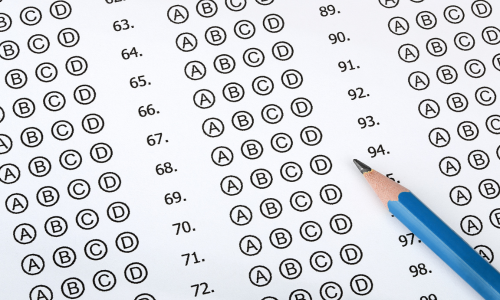
By extension, this means that it would have to ask you an infinite number of questions about yourself in order to fully ‘know’ you.
This is of course completely impractical, and so every personality test on the market has to compromise.
In other words, accuracy is traded off in favour of practicality.
Myers-Briggs, for example, asks people 90 or so questions – and I’d say that’s about the upper limit of what a human being can tolerate before tearing their hair out.
This tradeoff between accuracy and usability is the real dilemma of personality tests. By their nature, they need to be inaccurate for people to use them.
But of course, that doesn’t mean in any way that they can’t be useful. Let’s have a quick overview of what personality tests are good for, before we tackle that hidden trap you need to avoid…
The Benefits of Personality Tests
Personality tests have some tremendously good applications, and you can use them to greatly improve your life.
Firstly, they can bring you enhanced self-awareness. Gaining a deeper understanding of your own traits, behaviours and preferences can be extremely helpful for personal growth.
They can have a significant positive impact on relationships, too. Understanding how your personality interacts with others who are different can be highly insightful, resulting in better empathy and understanding all round.
Career development is another one. Understanding how your personality thrives is very useful for pointing yourself in the right direction when you’re looking for a job or business that will be a perfect fit for you.
Education and learning strategies are another very interesting area where personality tests can be highly effective. Your personality can affect how you learn, and being aware of that can help you to learn much more quickly and efficiently.

Definitely bear in mind though, that personality tests are not the only tools that you can use to improve your results in all of these areas.
In fact, there’s another very powerful thing you can be doing too, and we’ll get to that very soon!
Before that though, there is a key problem we need to look at.
The Problem With Personality Tests
Aside from the accuracy tradeoff that we’ve already mentioned, there is another problem at the very core of how personality tests work, and I briefly mentioned it earlier.
Even if their inventors didn’t intend it, personality tests can very easily box you in.
Once you are labelled as being a certain personality type, this is subconsciously reinforced in your own mind.
The personality test then essentially becomes a self-fulfilling prophecy for you.
Because you ‘know’ that you ‘are’ a certain way, you begin to take on that role more and more.
The traits perpetuate themselves and in some cases they become more exaggerated than they would be if you had never known about the personality test in the first place, or indeed the label that it assigned you.
This lack of flexibility can be dangerous, because the more rigid your thinking is, the less able you are to effectively respond to life.
Interestingly, this also makes you more like a computer, because you stay within the bounds of your assigned personality type.
Even the smartest AI cannot act outside of its bounds, but as a human, being able to do that is your superpower. So it’s crucial to not throw that superpower away!
In the realm of business for example, putting together a sound strategic plan is a highly complex task that demands a broad set of skills and approaches. Without a good level of flexible thinking, it’s simply not possible to achieve such a feat of strategy.
Another great example is having a successful marriage or relationship. Without flexible thinking, you’ll end up pretty stuck trying to achieve that goal as well!
So here’s the real problem with personality tests: They lack the flexibility to be functionally relevant in every situation and challenge that life presents you with.
The question is then, what can we do about that?
Well, there’s actually something hidden underneath all of this. Let’s take a closer look…
The Hidden Trap of Personality Tests (and How to Avoid It!)
If you want to make use of personality tests, that’s great, and I commend you for it. There are lots of advantages, but make sure you keep this hidden trap in mind.
Even if you use a personality test with full awareness of its limitations, namely the lack of accuracy and the lack of flexibility, you can still easily fall into this trap.
The hidden trap of personality tests is believing that they can take us as far as possible when it comes to understanding ourselves and getting better outcomes in life.
The reason that this is a trap is because we can actually go a lot further in our self-knowledge, and we can go even further still with creating better outcomes for ourselves.
The key thing that everyone is missing is the power of understanding how they think and how it influences the decisions they make.
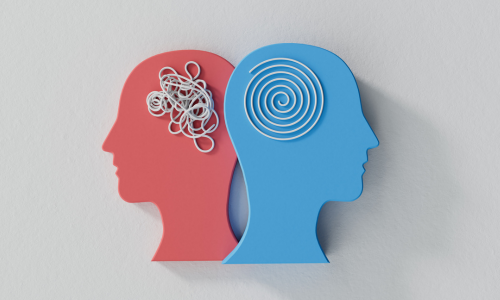
You can’t do that with a personality test, because thinking and decision-making, if you want to do them effectively, are boundless activities.
Although your personality will often want to be involved, thinking and decision-making can happen independently of your personality if needed.
Here’s a little-known truth that is actually the key to all the success in the world…
How a person approaches a difficult task needs to be determined by the requirements of the task itself, not a label on that person’s forehead.
This means that figuring out the thinking patterns and pathways that you need to use to achieve your goal is absolutely essential. And luckily, there is a way to do just that.
The Rhodes’ Thinking-Intentions Profile is a powerful tool, based on 47 years of research, that you can use to uncover your own hidden thinking pathways.
This naturally leads on to how you can approach your goals in the right way, to get the outcomes you are looking for, whether in business or in life in general.
It’s not a personality test, because it has that highly valuable flexibility and functional relevance that personality tests don’t have.
Thinking in terms of return on investment, the Thinking-Intentions Profile is on a different level to personality tests, because it directly impacts your outcomes.
There are lots of ways to dive into your own head, but this is the one with the biggest payoff.
You can give it a go using this link. Access is free for a limited time!


